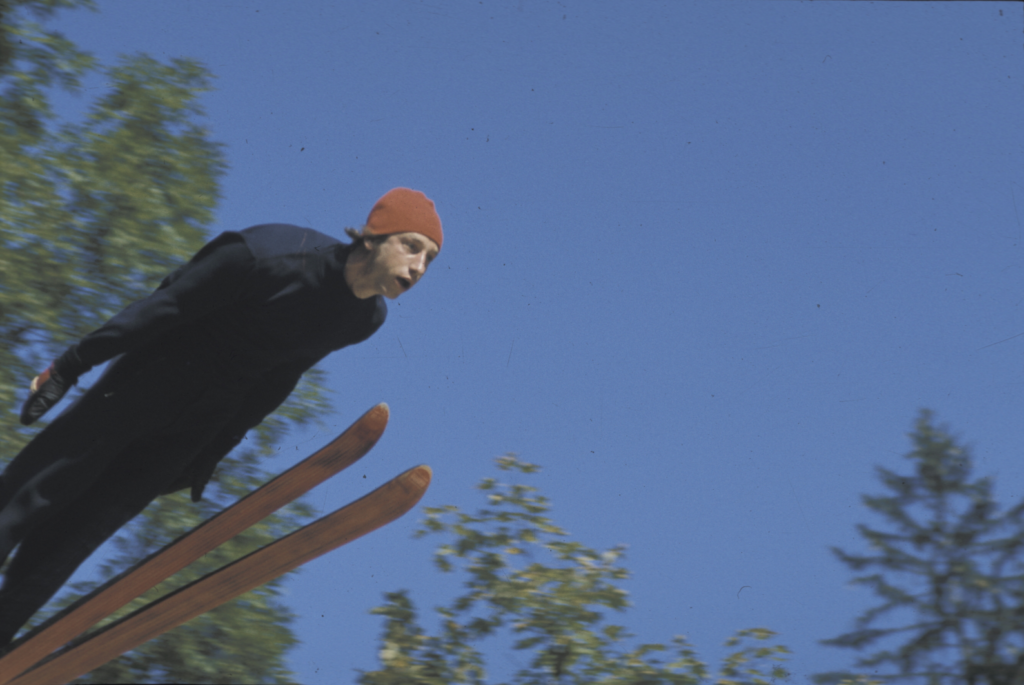
Werner Herzog, The Great Ecstasy of Woodcarver Steiner (still), 1972; image: © Werner Herzog Film
Film
The Great Ecstasy of Woodcarver Steiner with How Much Wood Could a Woodchuck Chuck
Friday, Feb 10, 2017
6 p.m.
With an introduction by Werner Herzog
“Herzog’s most memorable films have a euphoric effect, making the audience aware of the full potential of life. In the worlds his films create and observe, anything is possible and even achievable. For example, a simple craftsman can extend the limits of human existence. In Herzog’s oeuvre, this film, like the ski-flying abilities of Walter Steiner, ranks near the very top.” — Michael Koller, Senses of Cinema
“Herzog, a surrealist to the core, knows that the real world offers more fantastic phenomena than anything he can imagine.” — Time Out London
How Much Wood Could a Woodchuck Chuck is “a documentary account of the World Championship contest for livestock auctioneers, conducted in the Amish country of Pennsylvania… Since the auctioneers’ language is unintelligible to anyone save potential cattle buyers, the film becomes a study of gestures, a chance to view the contestants’ near-fanatical animation in abstract terms. The auctioneers’ absolute dedication to an unfathomable craft has the kind of freakishness that has often fascinated Herzog in the past, and here he once again examines odd behavior with distance and clarity.” — Janet Maslin, The New York Times
Film Details
The Great Ecstasy of Woodcarver Steiner
Country: Germany
Language: German
Year: 1972
Running time: 47 min
Format: DCP
Director: Werner Herzog
Cinematographer: Jörg Schmidt-Reitwein
Editor: Beate Mainka-Jellinghaus
Print Source: Werner Herzog Filmproduktion
How Much Wood Could a Woodchuck Chuck
Country: Germany
Languages: German, English
Year: 1976
Running time: 45 min
Director: Werner Herzog
Cinematographer: Thomas Mauch
Editor: Beate Mainka-Jellinghaus
Print Source: Werner Herzog Filmproduktion
Films and schedules may be subject to change.
Modern Cinema’s Founding Supporters are Carla Emil and Rich Silverstein. Generous support is provided by Nion T. McEvoy and the Susan Wildberg Morgenstein Fund. Additional support is provided by Becky Draper.